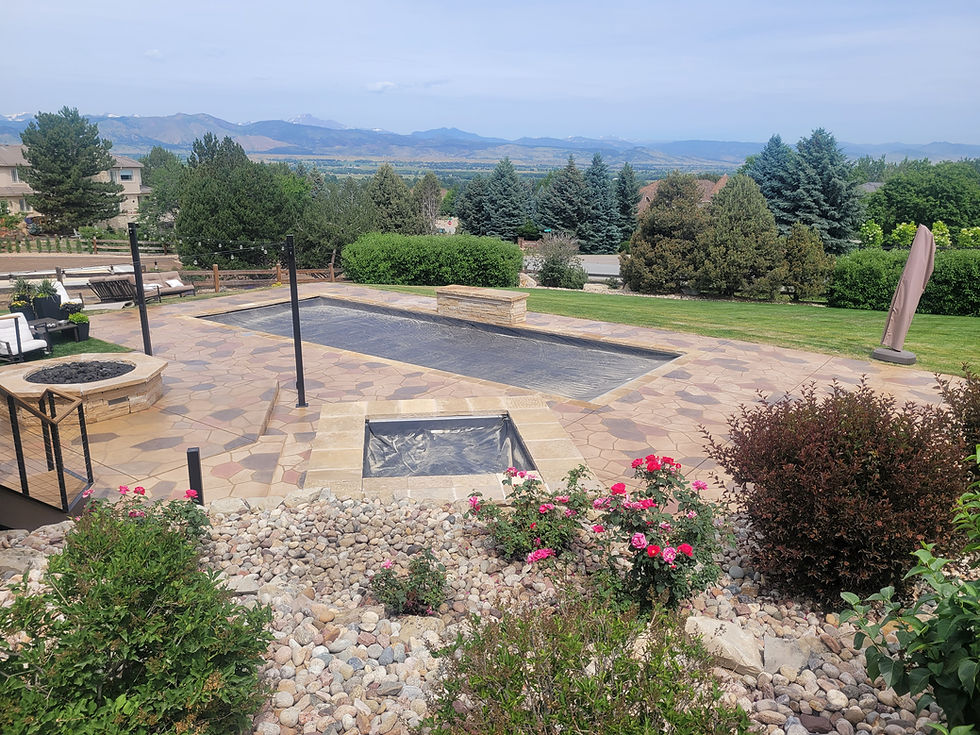How Often Should You Reseal Your Concrete in Colorado?
- Damian Bagby
- May 6, 2025
- 2 min read
Concrete is a durable and long-lasting surface, but here in Colorado, it takes a beating. From intense UV rays to freeze-thaw cycles and snowmelt chemicals, your concrete surfaces—whether patios, driveways, or pool decks—require consistent maintenance to stay protected and looking their best. One of the most important steps in that maintenance? Concrete resealing.
Why Resealing Concrete Matters
Resealing concrete does more than make it look clean and glossy. A high-quality sealer protects the surface from moisture, stains, deicing salts, and UV damage. Without it, concrete can fade, flake, crack, and deteriorate much faster—especially in Colorado's challenging climate.
Recommended Resealing Frequency
In general, most stamped or decorative concrete surfaces should be resealed every 2 to 3 years. However, the exact timing depends on several key factors:
Exposure to sunlight and weather: South-facing surfaces may need more frequent resealing due to UV exposure.
Foot or vehicle traffic: High-traffic areas like driveways or walkways may wear down faster.
Type of sealer used: Acrylic sealers usually need to be reapplied more often than penetrating sealers like silane-siloxane.
Visual cues: If your concrete looks dull, chalky, or has lost its color depth, it’s likely time for a reseal.
Colorado-Specific Concerns
Our local climate creates unique challenges for concrete. Freeze-thaw cycles cause expansion and contraction, leading to cracks and surface spalling. A quality sealer acts as a barrier to prevent water penetration, which is key in preventing winter damage.
If you live in areas like Denver, Castle Rock, or Highlands Ranch, we often recommend checking your sealed concrete every spring to assess if a reseal is needed.
Signs It’s Time to Reseal
Loss of shine or color
Water is no longer beading on the surface
Surface feels rough or chalky
Cracks or flaking appear
Stains aren’t lifting with cleaning
Professional Resealing Matters
At Concrete Sealers, we specialize in resealing stamped, stained, and broom-finished concrete. Whether you need a clear seal, an antique finish, or color restoration, we’ll help you extend the life and beauty of your concrete surfaces.



Comments